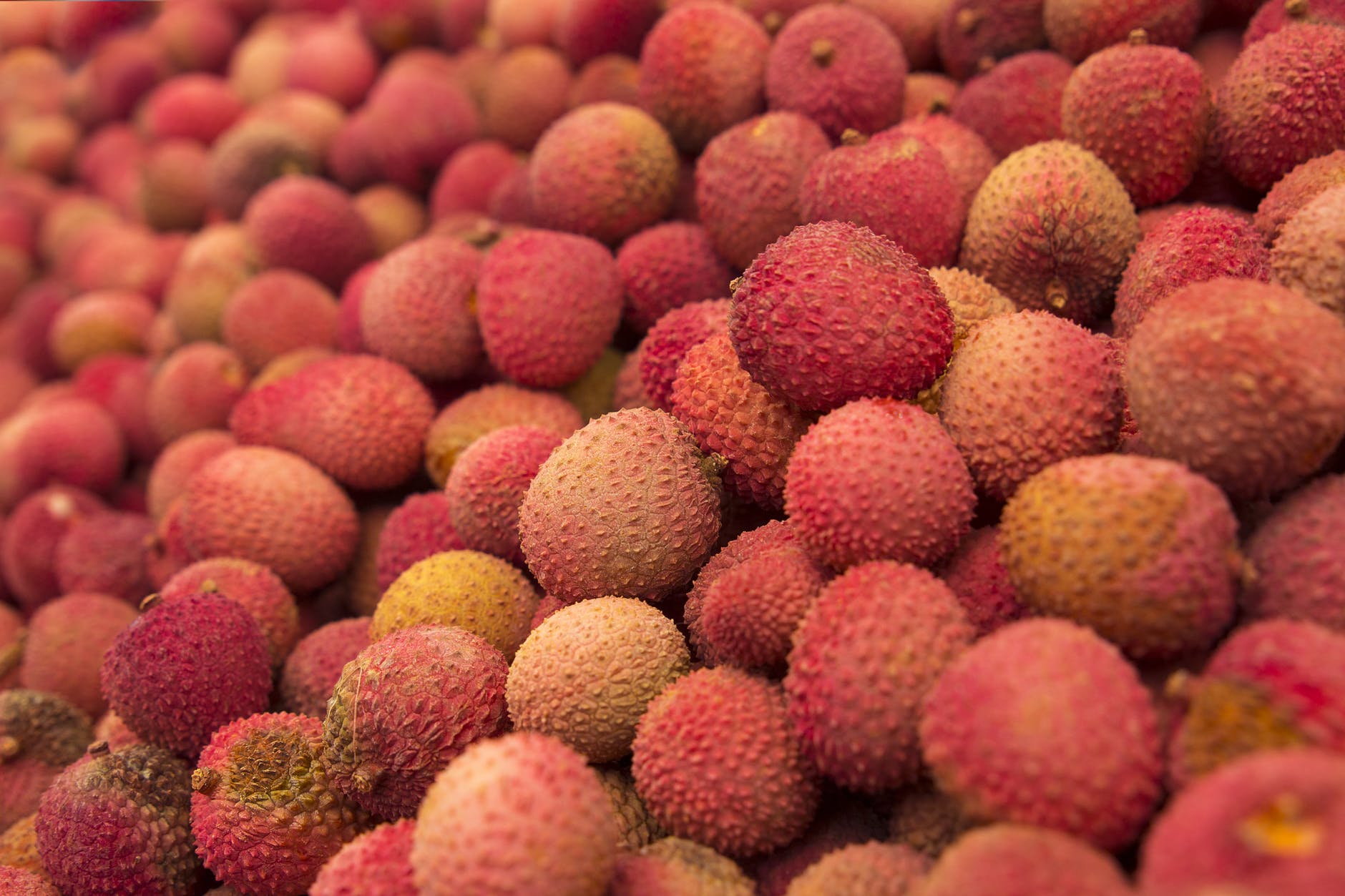Lychee fruit is widely popular and eaten by people in Summers and is also known as alligator strawberry. It is a natural bounty in tropic regions that tastes well when consumed. These fruits are oval or heart-shaped in structure with a fleshy interior. Prior to its form, the hard outer skin remains green, and when it gets ripped, it converts into pinkish-red. Commonly found bulging portions without a soft texture, the covering is set aside as it is edible before eating its pulp.
The opaque flesh is white to translucent with some seeds or arils. It has a juicy fragrance and a refreshing sweet taste. It can be grown in warm regions of the US like Florida and Hawaii.
The amount of fruit a lychee tree contains is dependable on its age. For example, young trees can produce up to 500 fruits, but older trees may produce as many as 5,000 fruits. Harvest season for lychee fruit is between May and June of the year.
The prime producer of the fruit in China, followed by India. Its cultivation goes back as far as 2000 B.C. Manufacturers use lychee to make juices, ice creams and sauces. It is also placed in some Asian supermarkets in dried form for procurement.
What are the lychee fruit nutrition values?
According to a 2015 study, it has proanthocyanidins which means lychee flesh is a rich source of plant compounds and it may have antioxidant anti-diabetic and cardioprotective health benefits.
It is a very good source of B-complex vitamins such as thiamin, niacin, and folates. These vitamins are essential since they function by acting as co-factors to help the body metabolize carbohydrates, protein, and fats.
Per 100g of Lychee has 66 calories.
- Protein – 0.83 gram
- Fat – 0.44 gram
- Carbohydrate – 16.5 gram
- Fibre – 1.3 gram
- Sugar – 15 gram
- Vitamin C – 71.5 mg
The lychee fruit is packed with vitamin C, vitamin B6, niacin, riboflavin, folate, copper, potassium, phosphorus, magnesium and manganese. It is a great source of dietary fiber, protein and a well-absorbable source of proanthocyanidins and polyphenolic compounds.
It comprises several minerals, namely potassium and copper. Potassium is a vital component of cell and body fluids that assists control heart rate and blood pressure. It acts as a safeguard against stroke and coronary heart diseases, while Copper is needed in the production of red blood cells.
It boosts immunity and works well for digestion. It stimulates gastric and digestive juices and nutrients in it are efficient. This can lower constipation and other gastrointestinal disorders. According to a study mentioned in the Journal of Functional Foods, it also aids in reducing abdominal obesity.
The Southwest Medical University researchers published a study in the journal which discovered that it has the neuroprotective effect of lychee seeds. Since it includes a wealth of potassium, it can help the human body maintain a fluid balance. It is also low in sodium. The fluid balance is an essential part of metabolic functions and controlling hypertension.
Who should avoid it?
In India, children had an unillustrated illness, and in 2014, scientists revealed that lychees were the cause. The undernutrition children had unripened lychees from an orchard. The merger of a compound in the fruit called hypoglycin A and low blood sugar led to acute neurological effects and even death.
People having medications for diabetics should avoid it as it could lower blood sugar levels. Moreover, it is not suitable for those who have been prescribed the following drugs: cardiovascular agents,
antiplatelet drugs such as clopidogrel,
nonsteroidal anti-inflammatory drugs such as ibuprofen or naproxen, anticoagulants such as warfarin or heparin, anticancer agents, antivirals, cholesterol- or lipid-lowering agents, immune-modulating agents, pain relievers and herbal supplements such as Ginkgo biloba.





